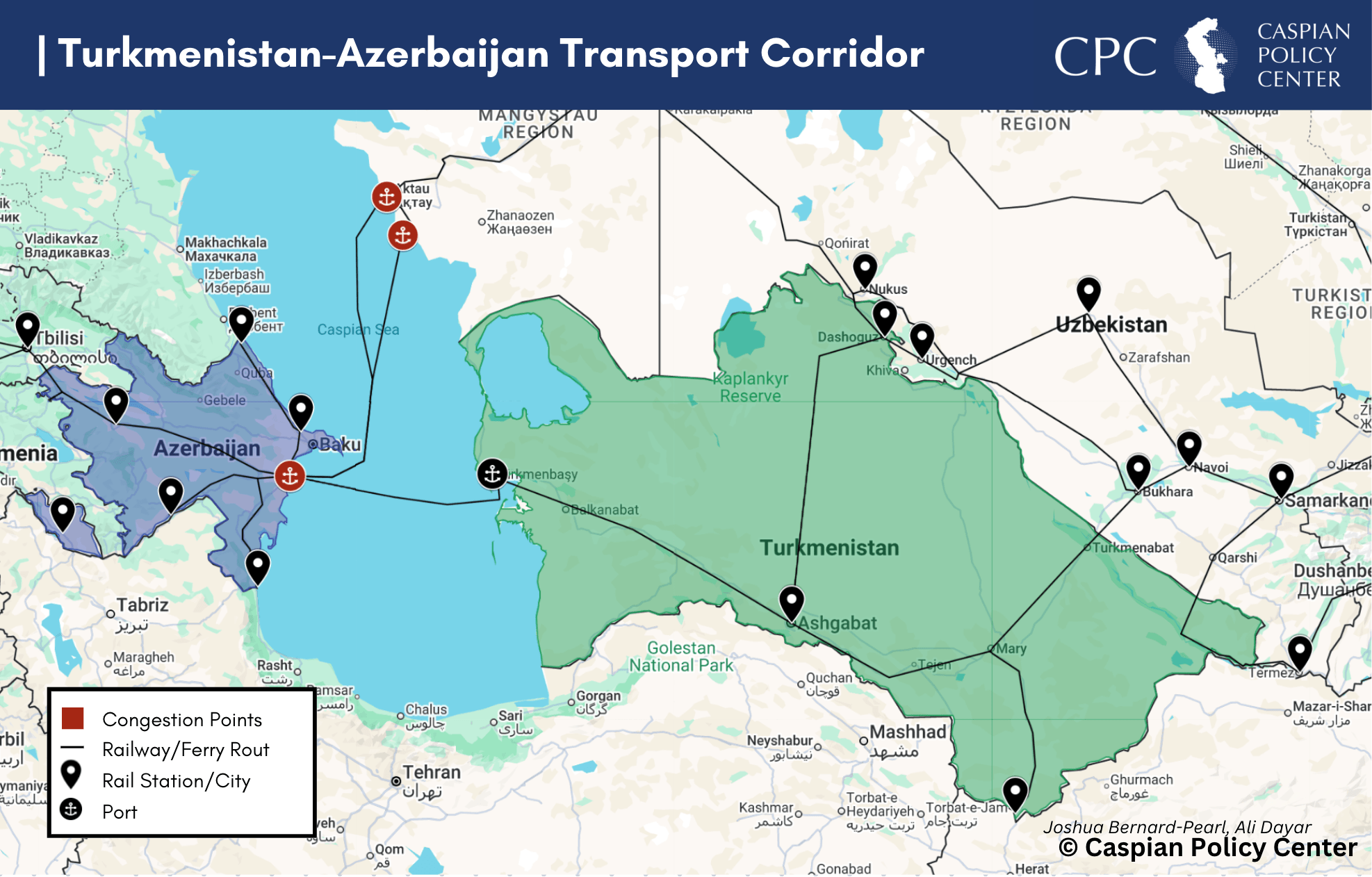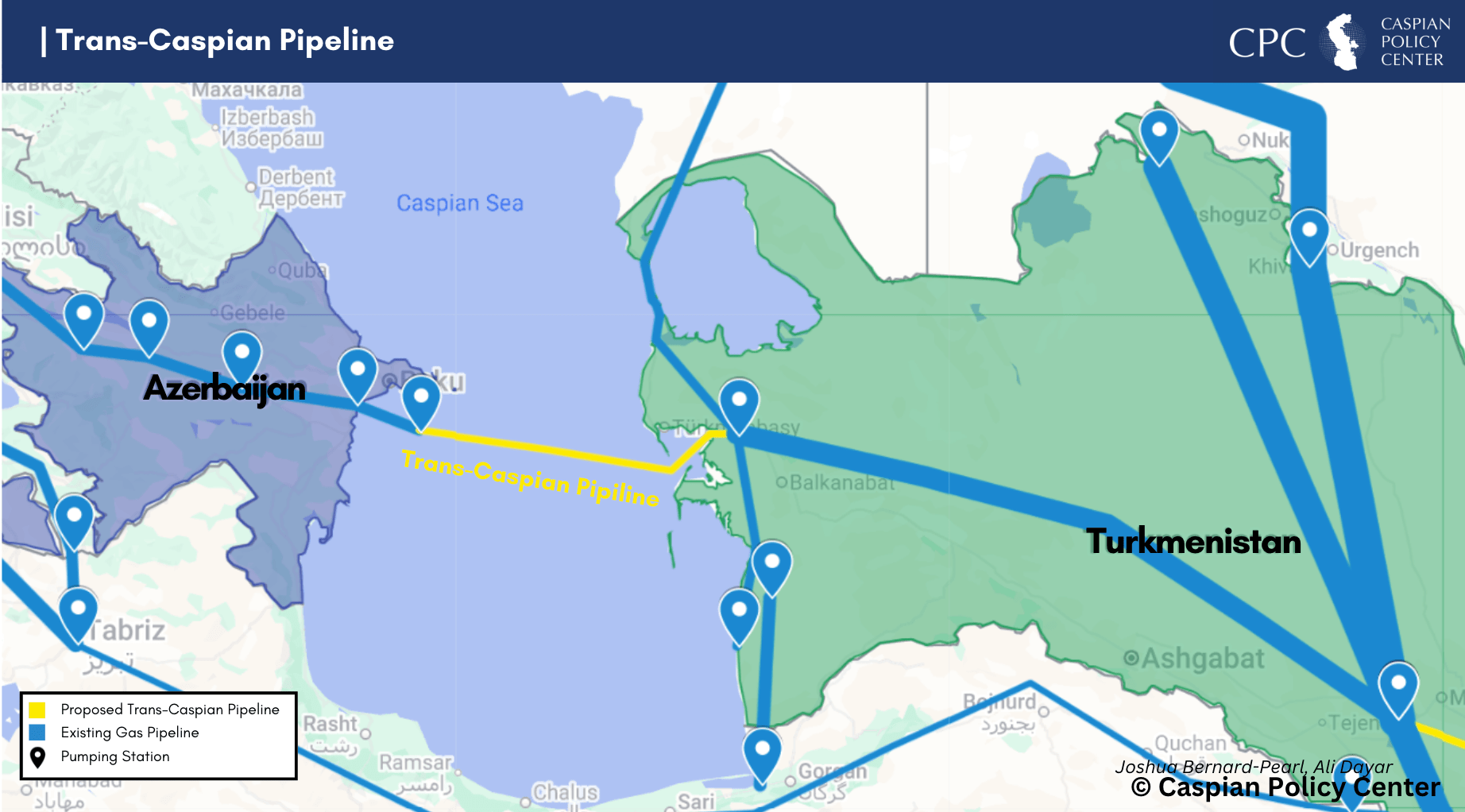Bridging the Caspian: Turkmenistan's Foreign Minister Meets With Azerbaijan's President Aliyev
Recent Articles
Author: Joshua Bernard-Pearl
07/11/2025
Turkmenistan, traditionally one of Central Asia’s more insular states, could be signaling a shift toward deeper integration with the wider region following high-level diplomatic engagement with Azerbaijan. On July 3, Azerbaijani President Ilham Aliyev received Turkmenistan’s Deputy Chairman of the Cabinet of Ministers and Foreign Minister Rashid Meredov in Khankendi. The meeting comes amid growing efforts to strengthen regional connectivity across the Caspian. The two countries reaffirmed “brotherly ties” between their people and discussed cooperation in energy, transport, culture, humanitarian affairs, science, and education. The importance of holding cultural days in each other's countries was also explicitly mentioned as a tool to further strengthen relations.
The visit follows sustained diplomatic exchanges between the two countries, including meetings in 2022 and 2023 where senior officials discussed expanding economic, energy, and cultural cooperation. Azerbijan Economy Minister Mikayil Jabbarov and Foreign Minister Meredov met in Ashgabat in October 2023 to deepen collaboration across trade, transport, energy, and agricultural spheres. In March 2023, Turkmenistan President Serdar Berdimuhamedov held wide-ranging talks with President Aliyev in Baku, covering political, energy, and humanitarian issues. These engagements laid the groundwork for the recent meeting and signaled growing momentum toward closer integration.
The wider Caspian region, including Central Asia and the South Caucasus, has been making major strides to integrate regional trade and facilitate transport across the region from China and Central Asia to the South Caucasus and Europe along the Middle Corridor route. In comparison to its neighbors, Turkmenistan has traditionally been more hesitant to join regional projects tied to major powers. This hesitancy falls in line with a broader Turkmenistan government policy known as positive neutrality. In line with Article 2 of Turkmenistan's constitution, which states that “the permanent neutrality of Turkmenistan shall be the basis of its national and foreign policy,” the country has always been wary of joining international groupings. Despite ongoing messaging that Turkmenistan is open to economic cooperation from all countries, in practice, this has meant Turkmenistan has refrained from joining geopolitically charged projects like China’s Belt and Road Initiative (BRI) or security organizations like Russia’s Collective Security Treaty Organization (CSTO). The Middle Corridor is an exception. Unlike the BRI or CSTO, it is not a centralized geopolitical plan or military initiative. Instead, the Middle Corridor consists of a series of individual projects spearheaded largely by the region itself to form a network of transportation infrastructure, much of which already runs through Turkmenistan.

Land and sea transport links and congestion points mapped out between Turkmenistan and Azerbaijan taken from Caspian Policy Center’s Middle Corridor Live Map.
Turkmenistan’s location on the eastern shore of the Caspian makes it a key hub for goods transiting the Caspian Sea. Given that Baku is the largest port on the western shore, cooperation between Azerbaijan and Turkmenistan could lead to expanded infrastructure facilitating a greater volume of goods transiting the Middle Corridor. Increased utilization of the port of Turkmenbashi in Turkmenistan could be vital to ease the current congestion at the other two major ports on the eastern shore of the Caspian – Aktau and Kuryk in Kazakhstan.

Map of existing natural gas pipelines and proposed trans-Caspian pipeline from Turkmenistan to Azerbaijan.
There is also ample opportunity for cooperation in energy between Turkmenistan and Azerbaijan. Turkmenistan leads the region by far in natural gas production, with 77.6 billion cubic meters in 2023. However, this is primarily exported through a series of pipelines to China and Russia. A trans-Caspian pipeline from Turkmenistan to Azerbaijan could enable the export of Turkmenistan’s gas to European markets that are eager for an alternative to Russian energy. First proposed by the United States in 1996, the trans-Caspian pipeline has long been delayed by funding challenges and unresolved maritime boundaries, as well as Turkmenistan’s reticence to engage on such a project. While demand for Turkmen gas in Europe was once limited, former U.S. Ambassador to Turkmenistan Matthew Klimow recently noted that demand signals are shifting. He pointed to changing energy dynamics since the war in Ukraine and emphasized the potential for renewed interest. The growing cooperation between Azerbaijan and Turkmenistan may be a sign that the conditions for advancing the project are finally beginning to align.
While no formal agreements were announced during Meredov’s visit, the diplomatic tone and scope of discussion suggests that Turkmenistan might be carefully positioning itself for greater regional participation. With momentum building around Caspian energy and trade corridors, this latest meeting could represent the first tangible step in a new phase of Turkmenistan’s regional engagement.